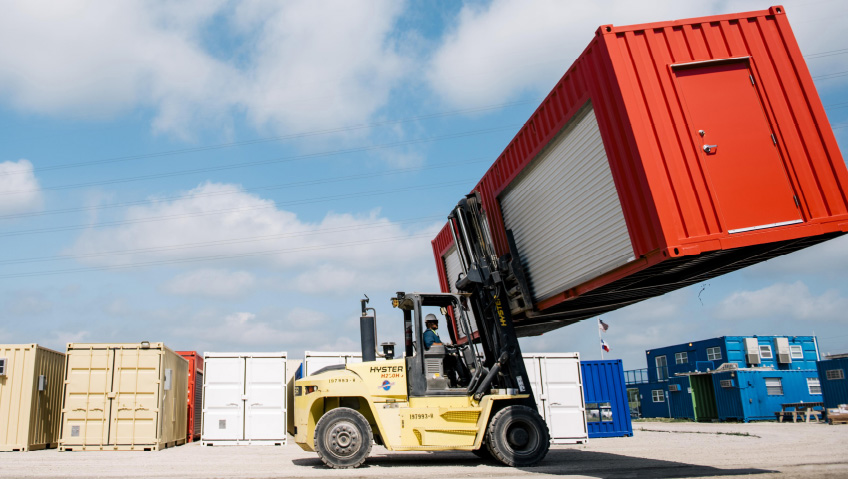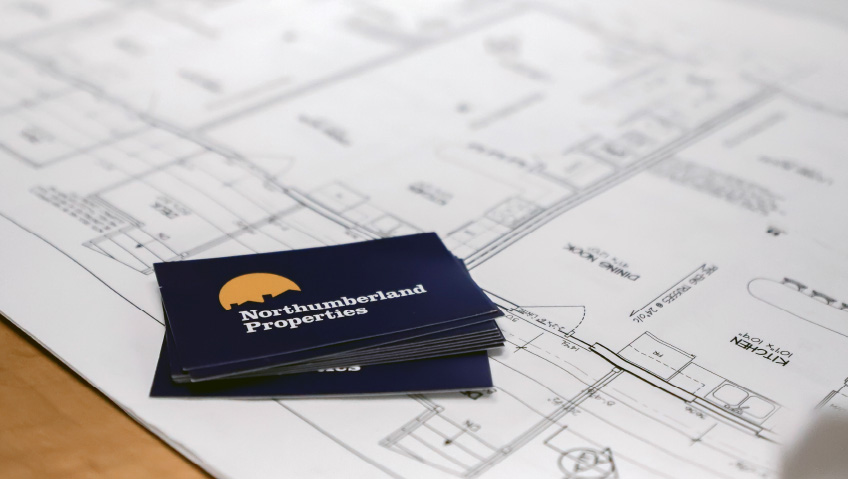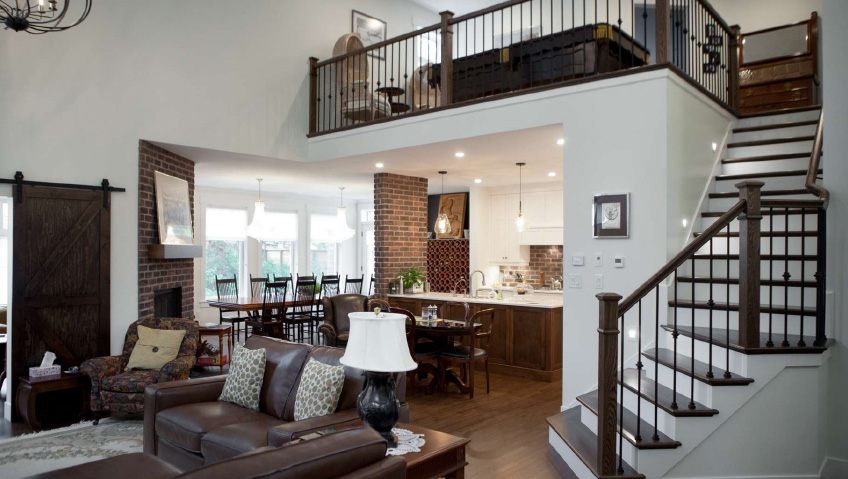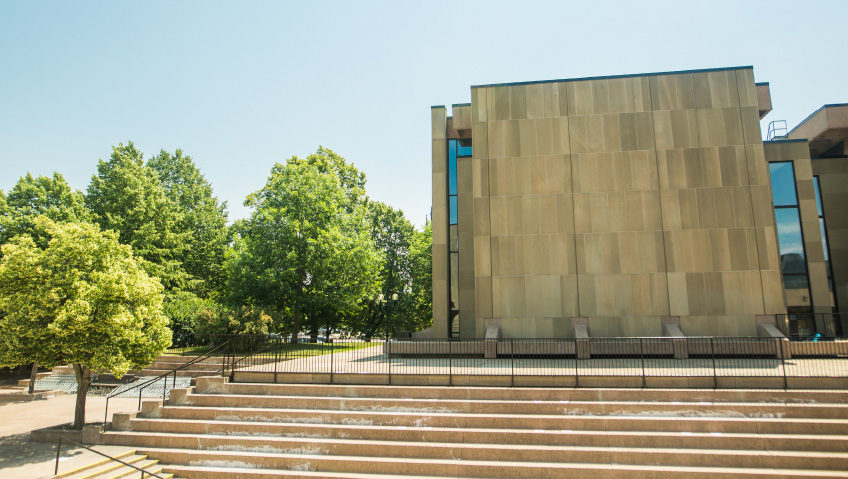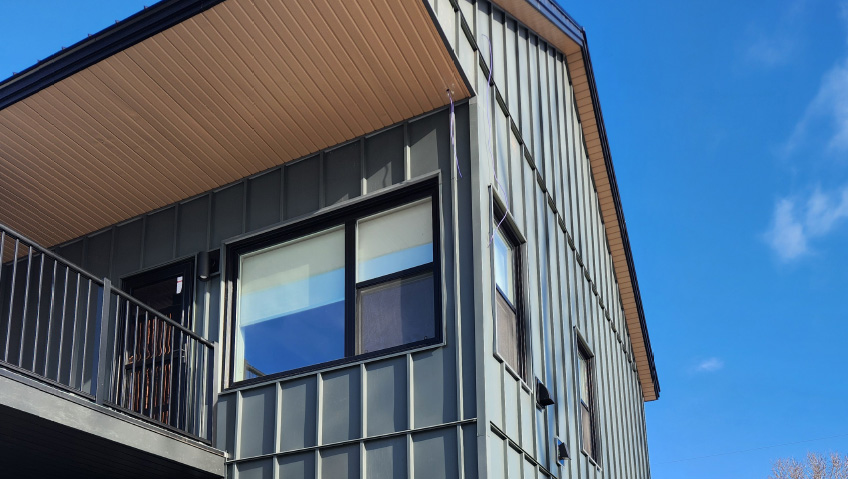From developers and politicians to the public, the words “modular construction” have been on the lips of many for years, with good reason. Interest in the field has been growing thanks to broader industry acceptance, efficiency, and clearer code frameworks. “There is definitely more attention toward the industry, and it’s exciting to talk about modular,” says Stephen Shang, Chief Executive Officer and Co-Founder of Texas-based Falcon Structures.
Transforming shipping containers into usable spaces is one piece of the modular puzzle, a smart and sustainable option with applications for industrial, commercial, and even residential use.
“There’s more excitement, but if you take our little part of the industry—repurposing shipping containers—I would say 10 years ago nobody really thought about code with shipping container structures,” says Shang. “Today, I would say most projects moving through our production system are permitted, and regulators are definitely taking a really hard look at these types of structures, whereas they weren’t before.”
Advocating for industrial workers
When Shang and Co-Founder and Executive Vice President of Products, Brian Dieringer, launched Falcon Structures in 2003, the modified shipping container industry was in its infancy. The company has grown significantly over the past two decades, serving workers in manufacturing, oil and gas, energy, and construction and attracting customers such as energy corporations, the United States Department of Defense (DOD), and construction companies. Falcon Structures became the first in-house container structure manufacturer to achieve an ICC Evaluation Service Report (ESR 4163), confirming compliance with the International Building Code® (IBC) and International Residential Code® (IRC). The company designs each project to the code requirements adopted by its jurisdiction, and is a proud member of the Modular Building Institute (MBI) and the National Portable Storage Association (NPSA).
Falcon has adapted to the market and become a leader driving change in the industry. “We’ve been focused on two main areas: employee advocacy and expanded service offerings,” says Shang. The company’s employee advocacy initiative came about when Falcon shifted its marketing approach in response to customer feedback. Some of the most enlightening feedback came from customers whose jobsite workers grew frustrated with unsanitary portable toilets and had Falcon create modular units with change areas and proper bathrooms.
“We’re not just selling bathrooms to construction sites—we’re actually selling something that improves worker well-being, employee morale, and safety,” says Shang. “So instead of going into one of those portable toilets, what Falcon has is a bathroom that’s air-conditioned and has running water. You can wash your hands in there and have more dignity—and no more nasty blue chemical splashing up.”
Falcon’s bathroom and locker room containers have come at a time when industries like construction and manufacturing are bringing in more female workers. Shang recalls being at the Modular Building Institute’s popular World of Modular industry event when a woman thanked him for creating modular units for construction sites featuring proper bathrooms.
“The story that goes with the product is one way we’ve been promoting Falcon, and it’s really resonated with our marketplace: ‘If you want to get more women into the workforce, and if you want to retain your blue-collar employees—which are getting hard to find—use this,’” says Shang. “And I think that message is getting out there and doing a lot of good. All of a sudden, this class of workers is treated with a lot more dignity, and it’s good for morale. That’s one area where we’re seeing a lot of demand, and our competitors are picking up on this as well.”
A true partner
In addition to these products for workers, Falcon is also seeing growth in its expanded service offerings. Even though Falcon has general contractor-like services, it is not a general contractor, Shang explains. General contractors are there to address risks and solve problems, and since Falcon Structures is a factory, sometimes hundreds of miles away from the structure’s final location, it cannot absorb those risks. “So instead of being a risk-absorption machine, we can come alongside that general contractor and help them reduce those risks, so that’s a win-win for everyone—for the general contractor, for us, and for the owners,” he says. “We don’t want to be general contractors; I think for modular factories, that’s a very dangerous path.”
The company is working with customers to tackle permits, state inspections, and other areas. Receptive to customer feedback, Shang and his team do everything possible to make modular construction projects successful. “Expanding our service offerings, on top of the manufactured product, has really boosted demand for the manufactured product, because people are no longer wary of it. Instead they’re thinking, ‘this could be easy.’”
This is encouraging to Shang, who believes that modular factories best set themselves up for success when they operate with a long-term business mindset, not as project-by-project general contractors. “[The industry] attracts a lot of general contractor-type mentality, where it is project-by-project-by-project… but at the end of the day, people don’t say, ‘Look at that great general contracting company;’ they look at the structure, its project base, and its measurements for success,” he explains.
“In modular… if you don’t adopt that overall business mindset, you are going to go out of business, because you’re thinking short-term. It’s interesting to see the number of modular companies that have done this big jump up and then just collapsed. But if we start thinking about modular as a business model—as opposed to a project delivery mechanism—we are going to be a lot better off.”
The coming years
As Falcon’s CEO, Co-Founder, and MBI President, Shang has his share of responsibilities to both his company and the modular construction industry as a whole, and is always exploring new use cases. Falcon’s solutions, for instance, can help customers adapt or expand existing facilities through modular retrofits, which improves proximity, comfort, and productivity for workers through modular design. With many factories adopting lean principles and scrutinizing how both workers and materials flow through a facility, it could be straightforward for them to use modular solutions to adjust their facilities based on their needs.
The way Falcon Structures promotes itself is also changing, and Shang sees a growing emphasis on customer stories. “And I don’t think our industry is very good at that,” he shares. “We can say we shipped out a ‘bathroom module’ or a ‘small-footprint module,’ but what we really need to encourage our team to do is ask, ‘what are they using it for? What would they have used instead? Why does modular make sense?’ Coming up with those stories has really helped our employees come alive.”
As MBI President, Shang is focused on the industry’s future and is doing his part to position Falcon and MBI for success. Looking ahead, he sees continued growth and opportunity for modular construction as more organizations embrace off-site solutions to improve safety, efficiency, and worker well-being. For Falcon, that means deepening its role as a trusted partner—helping customers design and deploy modular environments that make everyday work safer, cleaner, and more productive.

